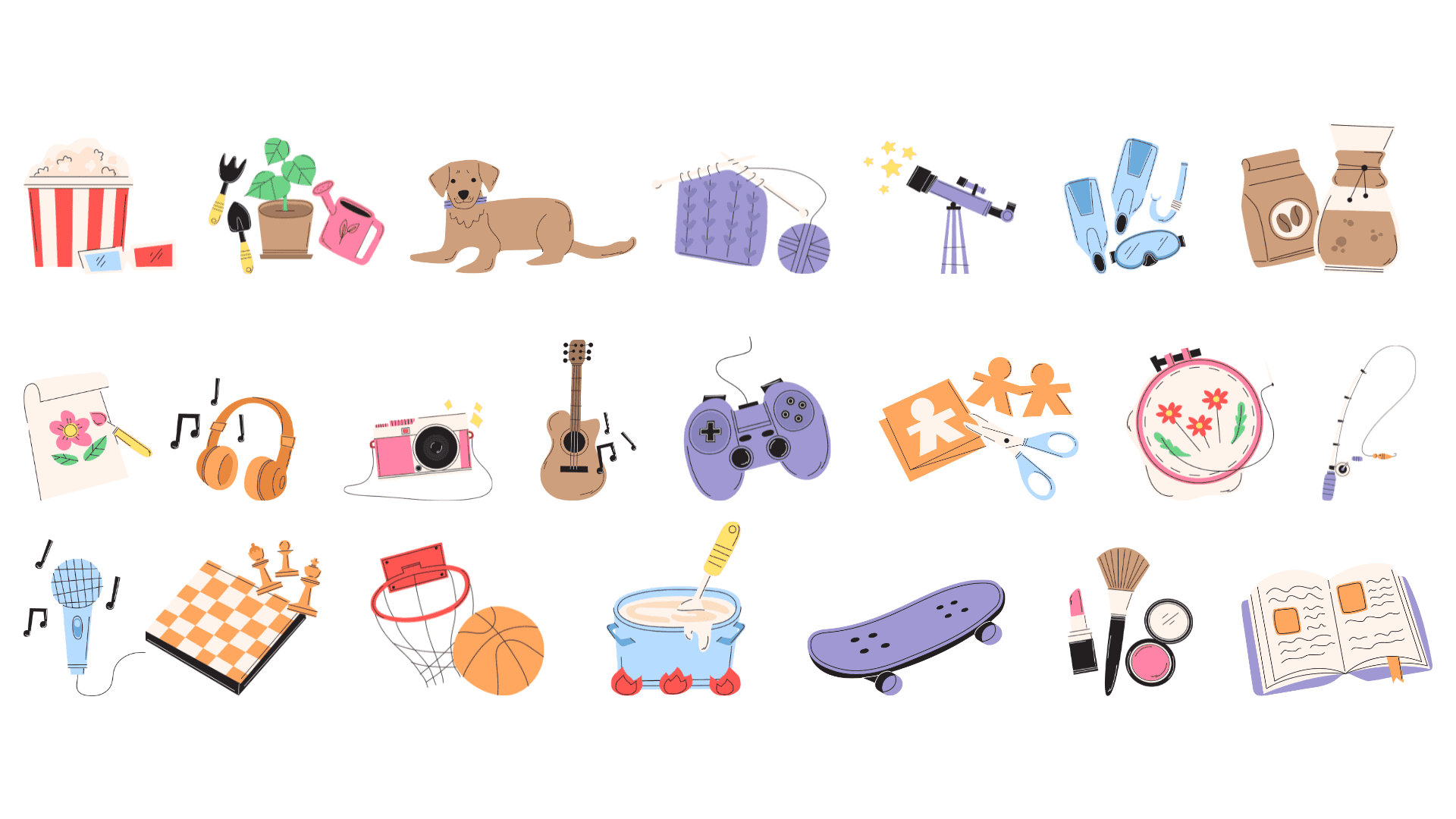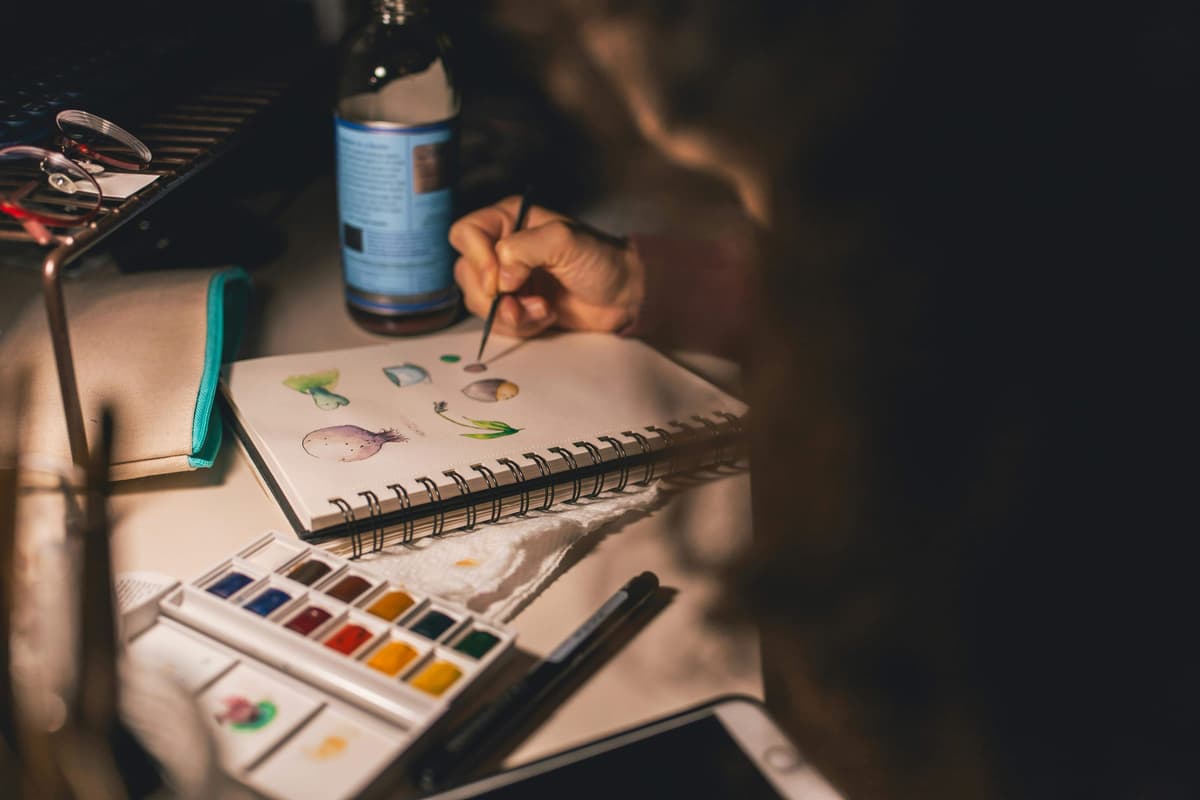

In our fast-paced world, it’s easy to get caught up in the demands of work, family, and everyday responsibilities, leaving little time for ourselves. But carving out time for a hobby isn’t just a luxury—it’s a necessity for our well-being. Engaging in activities we love can reduce stress, spark creativity, and even improve our mental health. Not all hobbies are created equal, and finding one that truly aligns with your personality can make all the difference. In this post, we’ll explore the many benefits of having a hobby and guide you on how to discover one that fits your unique traits and interests, so you can enrich your life in meaningful ways.
Hobbies are more than just a way to pass the time—they are essential to maintaining a balanced, fulfilling life. Engaging in activities you love can provide numerous physical, mental, and emotional benefits, enriching your life in ways that go beyond simple enjoyment.
One of the most significant benefits of having a hobby is its positive impact on mental health. Engaging in an activity you enjoy can be a powerful form of stress relief, allowing you to disconnect from daily pressures and focus on something pleasurable. Hobbies provide a sense of purpose and accomplishment, which can boost self-esteem and overall mood.
Whether it’s painting, playing an instrument, or gardening, the act of immersing yourself in something you love can reduce anxiety, alleviate depression, and help you manage stress more effectively.
Hobbies, especially creative ones like writing, crafting, or cooking, stimulate the brain in unique ways, encouraging innovative thinking and problem-solving. Even if your hobby isn’t traditionally “creative,” engaging in any activity that you are passionate about can help you think outside the box and apply new perspectives to other areas of your life.
Many hobbies offer opportunities to connect with others who share similar interests. Whether you join a local sports team, participate in a book club, or attend crafting workshops, hobbies can help you build meaningful social connections.
In today’s busy world, it can be challenging to maintain a healthy work-life balance. A hobby can serve as a much-needed escape from work-related stress and responsibilities, providing a break that allows you to recharge and return to work with renewed energy and focus.

Understanding how different hobbies align with various personality types can help you find activities that are not only enjoyable but also satisfying.
Creative individuals are typically imaginative and expressive. They often enjoy activities that allow for personal expression and exploration in various forms, offering opportunities for personal growth and satisfaction through artistic achievements.
Hobbies for creative types:
Analytical individuals are detail-oriented, logical, and enjoy problem-solving. Analytical hobbies challenge the intellect and provide a sense of achievement through problem-solving and logical thinking. They offer mental stimulation and a structured approach to creativity.
Hobbies for analytical types:
Adventurous individuals are energetic, spontaneous, and thrive on excitement and new experiences. They enjoy physical activities and exploring the great outdoors.
Hobbies for adventurous types:
Introverted individuals prefer solitary activities or small groups. They value quiet time and often enjoy reflective and personal pursuits.
Hobbies for introverted types:
Starting a new hobby can be an exciting and fulfilling experience, but it’s important to approach it with the right mindset and strategies to ensure that you get the most out of it.
Diving into a new hobby can be overwhelming if you try to tackle too much too soon. Starting small allows you to ease into the activity, learn the basics, and build confidence gradually.
Consistency is key to developing proficiency and enjoying your hobby. Regular practice or engagement helps you improve and makes the hobby a more integrated part of your routine. Gaining knowledge and skills from others can accelerate your learning and prevent common pitfalls. Whether through formal classes or informal advice, guidance can enhance your experience.
Developing proficiency in a new hobby takes time and effort. Patience and persistence are crucial for overcoming challenges and maintaining motivation. Embrace the small victories and enjoy the journey, even if it comes with a few bumps. Keep practicing and stay positive—your dedication will pay off. Over time, you’ll find that the challenges become easier, and the hobby becomes a more fulfilling part of your life.
Starting a new hobby can be rewarding, but it often comes with challenges. Finding time can be tough, especially with a busy schedule. To overcome this, integrate hobby time into your routine and prioritize it like any other important activity. Limited resources can be addressed by starting with basic supplies and exploring affordable or DIY options. If lack of knowledge is a hurdle, seek out beginner guides, tutorials, and community support to build your skills.
Starting a new hobby can be a deeply rewarding experience, offering both personal growth and joy. While you might face challenges such as finding time, overcoming frustration, and developing skills, approaching these obstacles with patience and persistence will help you succeed. Remember to start small, set realistic goals, and seek out resources and support to enhance your learning.

A well-designed office space is more than just aesthetically pleasing—it can dramatically enhance your productivity. Your environment influences how you work, so small changes can make a big difference in how you feel and how efficiently you get things done. By tweaking certain aspects of your workspace, you can boost focus, creativity, and even your …

You can always be better at the art of writing, whether you’re a student who has just learned the alphabet, or an experienced writer. Refining your skill opens many opportunities and allows you to articulate your ideas better. Here’s a guide with 15 helpful tips to help you improve the quality of your writing, from …

Working in a cluttered office can feel like trying to run a marathon with a backpack full of rocks. It’s distracting, stressful, and definitely not helping you get things done. Whether your desk is drowning in paperwork or your computer’s a mess of files you can never find, it’s hard to be productive when you’re …